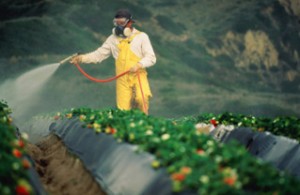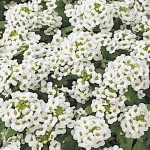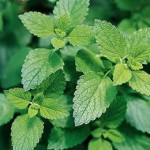One huge advantage of growing your own veggies at home is that you can control the chemicals applied to them and deter the bugs that invariably try to eat them before you do. But why is this important?
 Pesticides Contaminate
Pesticides Contaminate
A recent news report out of Israel states that a third of the pesticides they use are banned in Europe, and that the Israel Union for Environmental Defense found high levels of as many as 105 pesticides in fruit and veg grown in that country. Those most affected were apples, grapes and celery.
This doesn’t mean that what they are doing in Israel is illegal, but one wonders how easily the treated crops could reach our own tables. Israel exports food all over the world, and so how would you even guess that it might be contaminated? Even if you don’t live in Israel or buy food that originated there, there may be food on your supermarket shelves that has been treated with pesticides that ironically lower their “quality”.
Particularly scary is the fact that many modern pesticides have been formulated so that the stuff that kills the bugs can’t be removed by watering (clearly to stop it washing off in the rain). Do you want to consume pesticides? According to the US Environmental Protection Agency (EPA), there are at least 20,000 pesticides on the market and about 1-billion pounds of pesticide are used every year for agriculture. That’s just in the US. Even the cynics are beginning to realize that they do do damage! The ideal is organic vegetables that have not been treated with pesticides.
Vegetables you can Expect to Have Been Treated with Pesticides
In June 2012, the US Environmental Working Group (EWG), which aims to do everything possible to protect the environment and public health, produced a list of the 12 produce items with the highest pesticide content. Apples and celery topped the list (in keeping with the Israeli findings), while grapes popped in at number seven. The rest, from three to 12 were, strawberries, peaches, spinach, nectarines, sweet bell peppers, potatoes, blueberries, lettuce, and kale and collard greens.
Fruit and Veg that Escape the Pesticide Plague
The EWG also published a list of the least contaminated fruit and veg. from 1-15: Onions, corn, pineapples, avocado, asparagus, sweet peas, mangoes, eggplant, cantaloupe, kiwifruit, cabbage, watermelon, sweet potatoes, grapefruit, and mushrooms. Interesting that tomatoes don’t feature on either list.
The Solution?
Grow your own veggies at home. Use organic fertilizers and natural pesticides; and practice companion planting. Our book Companion Planting for Veggies comes with a free bonus book Natural Pest Control Remedies. It contains 50 tips and recipes for banishing pests in your veggie garden using safe and natural solutions. You can easily make them in your kitchen!



